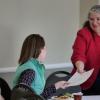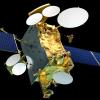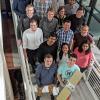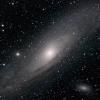News Headlines
 If You Go: Who: Faculty and staffWhat: Proposal Budgeting 101 workshopWhen: Thursday, March 22, noon to 1:30 p.m. (lunch provided)Where: University Memorial Center (UMC), Aspen RoomRSVP: Due March 14 by 5 p.
If You Go: Who: Faculty and staffWhat: Proposal Budgeting 101 workshopWhen: Thursday, March 22, noon to 1:30 p.m. (lunch provided)Where: University Memorial Center (UMC), Aspen RoomRSVP: Due March 14 by 5 p. NASA's Global-scale Observations of the Limb and Disk (GOLD) instrument, built by CU Boulder, will investigate the dynamic intermingling of space and Earth's uppermost atmosphere—and is the first NASA science mission to fly an instrument as a commercially hosted payload.
NASA's Global-scale Observations of the Limb and Disk (GOLD) instrument, built by CU Boulder, will investigate the dynamic intermingling of space and Earth's uppermost atmosphere—and is the first NASA science mission to fly an instrument as a commercially hosted payload. Join the conversation about how Colorado became one of the largest space economies per capita in the nation—and how Colorado legislators can effectively support aerospace in our state.
Join the conversation about how Colorado became one of the largest space economies per capita in the nation—and how Colorado legislators can effectively support aerospace in our state. Current sea level rise projections assume a constant rate, but CIRES fellow Steve Nerem found the rate is actually accelerating.
Current sea level rise projections assume a constant rate, but CIRES fellow Steve Nerem found the rate is actually accelerating. Healthcare workers, security guards and other employees who periodically work the night shift are significantly more likely to have Type 2 diabetes than workers who work only days, according to a sweeping new study by researchers from CU Boulder and Brigham and Women’s Hospital (BWH) in Boston.
Healthcare workers, security guards and other employees who periodically work the night shift are significantly more likely to have Type 2 diabetes than workers who work only days, according to a sweeping new study by researchers from CU Boulder and Brigham and Women’s Hospital (BWH) in Boston. The MAXWELL cubesat, a University of Colorado Boulder Smead Aerospace graduate project, has been selected as a winner in the Air Force University Nanosatellite Program Flight Selection Review.
The MAXWELL cubesat, a University of Colorado Boulder Smead Aerospace graduate project, has been selected as a winner in the Air Force University Nanosatellite Program Flight Selection Review. CU Boulder announced it has joined the University Climate Change Coalition (UC3), a newly formed coalition of 13 leading North American research universities that have united to help communities achieve their climate goals and accelerate the transition to a low-carbon future.
CU Boulder announced it has joined the University Climate Change Coalition (UC3), a newly formed coalition of 13 leading North American research universities that have united to help communities achieve their climate goals and accelerate the transition to a low-carbon future. CU Boulder researchers have discovered a mechanism that explains the persistence of asymmetrical stellar clusters surrounding supermassive black holes in some galaxies and suggests that during post-galactic merger periods, orbiting stars could be flung into the black hole and destroyed at a rate of one per year.
CU Boulder researchers have discovered a mechanism that explains the persistence of asymmetrical stellar clusters surrounding supermassive black holes in some galaxies and suggests that during post-galactic merger periods, orbiting stars could be flung into the black hole and destroyed at a rate of one per year. Ask a nonscientist what memories are made of and you’ll likely conjure images of childhood birthday parties or wedding days. Charles Hoeffer thinks about proteins.
Ask a nonscientist what memories are made of and you’ll likely conjure images of childhood birthday parties or wedding days. Charles Hoeffer thinks about proteins. University of Colorado Boulder community,All of us here at CU Boulder are pleased that the Senate, House and President have agreed on a Continuing Resolution (CR) to end the federal government shutdown that began last Friday. We appreciate the
University of Colorado Boulder community,All of us here at CU Boulder are pleased that the Senate, House and President have agreed on a Continuing Resolution (CR) to end the federal government shutdown that began last Friday. We appreciate the

